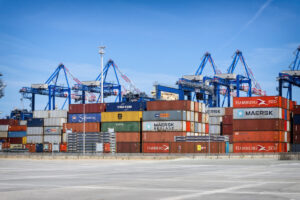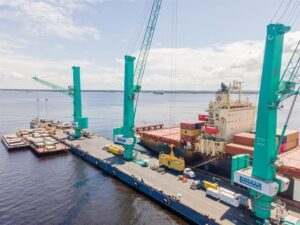As the 0.5% sulphur fuel cap approaches, on the 1 January, 2020, the International Chamber of Shipping (ICS) has praised industry efforts to resolve practical challenges.
A recent working group meeting of the International Maritime Organization (IMO) encouraged members to submit proposals on how to achieve a “smooth and consistent” implementation of the fuel cap.
In addition to this, the IMO has developed a template for ship-specific ‘Implementation Plans,’ which will be adopted by the Marine Environment Protection Committee.
Simon Bennett, Deputy Secretary General of the International Chamber of Shipping, discusses the IMO's greenhouse gas strategy in a recent Port Technology technical paper
Commending the IMO, Peter Hinchcliffe, ICS Secretary General, said: “Although there is still much work to be done, last week’s IMO discussions were positive.
“[Governments] have acknowledged the safety concerns raised by [the] industry about the use of compliant fuels, including possible incompatibility.
“IMO has now agreed that these critical issues should be urgently addressed by the next IMO Maritime Safety Committee in December 2018.”
Hinchcliffe also welcomed a statement from the International Organization for Standardization (ISO).
He said: “ISO announced that the existing industry standard for marine fuel oils, ISO 8217, already addresses the new 0.5% fuel blends that will be used by many ships to comply in 2020.
“In view of recent concerns, ISO’s confirmation that no revision of the standards is needed prior to 2020 is very welcome as is ISO’s recognition that existing tools to assess compatibility are inadequate and its reassurance that ISO is actively seeking solutions before the 2020 deadline.”
Read more:
-
The International Chamber of Shipping has released a new publication to support the global shipping industry in phasing out CO2 emissions
-
Transparency International, a non-governmental organization formed to tackle global corruption, has found a number of “critical governance flaws” that could compromise the IMO’s 2050 Greenhouse Gas (GHG) strategy.








